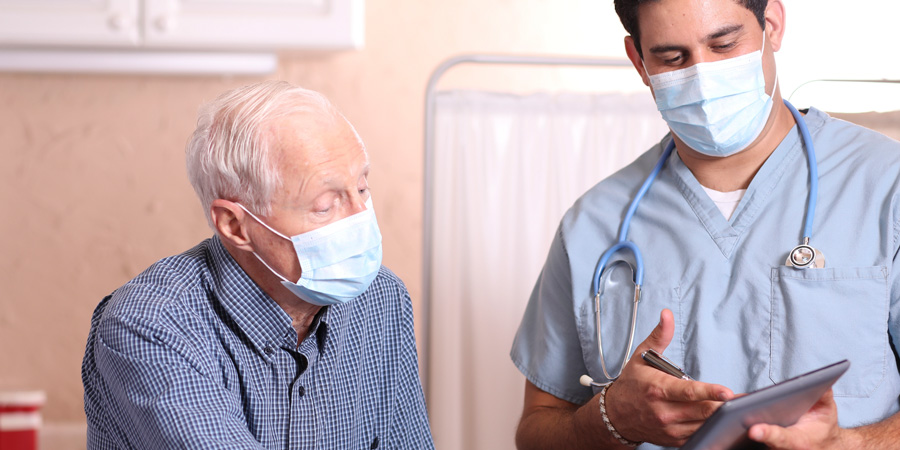What To Expect As You Return To The Doctor's Office Following COVID-19
July 8, 2020
COVID-19 has been the primary focus of healthcare systems for several months now. As the country re-opens and becomes accustomed to a new normal, many people are facing important decisions about their health and visiting the doctor's office might be causing more apprehension than ever.
Harold Tucker, M.D., Chief Medical Officer of GBMC and President of GBMC Health Partners, explains, "Patients are concerned that we're keeping them safe when they come to the office or the hospital and that we're taking the precautions the CDC recommends. They have certain expectations and we want to make sure we deliver on those expectations, while keeping them safe and our staff safe."
Whether it's a surgery that was delayed, a preventative test put on hold, or resuming ongoing cancer treatments, Dr. Tucker says GBMC is doing everything they can to protect their patients and staff from the virus, while keeping everyone's long-term health in mind.
If you're debating on a trip to the doctor, Dr. Tucker asks that you communicate with your provider first, unless you're acutely sick.
"There are many good things that video visits can accomplish. [While] assessing the patient without actually laying hands on the patient, there's a lot of information that can be garnered," Tucker says.
He reiterates if you do need to come in, every measure of safety has been taken to prevent the spread of coronavirus.
"All the waiting rooms have been reconfigured to minimize interactions and keep social distancing. All patients are expected to wear a mask. There are screening questions and temperature checks for every patient. There is COVID-19 test screening for patients having invasive procedures several days before the service."

These precautions are in addition to the staff wearing proper protective equipment, washing their hands, and working under the assumption that any patient could have COVID-19.
Dr. Tucker understands patients' hesitancy toward visiting hospitals, but he advises everyone to take a big-picture approach to their health.
"Diseases progress. If you're at risk from some complication of a disease and we don't pay attention and do what we need to do to stop it from progressing, that's not a good solution," Tucker says.
There are several examples of procedures that should not be put on hold, including preventative screening procedures, immunizations, monitoring of chronic diseases, and certain surgeries.
"If it was needed before COVID, it's still needed," Dr. Tucker says. "We don't want the disease to progress for waiting because of fear."
The staff at GBMC is also working to ease the inconvenience for family members who can't accompany their loved one into surgery or the intensive care unit (ICU). Dr. Tucker knows it can be difficult to go through a procedure without support. GBMC now offers tablets so that patients and family members can communicate with each other and the care team.
He says the solution is far from ideal but adds, "We're constantly balancing the ideal way to be protective [along with] the practical and compassionate way to care for patients."


